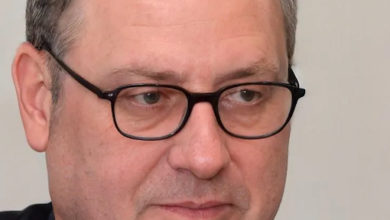
By: Quadri Yahya
As Nigerian politicians make strategic moves ahead of the forthcoming 2027 nationwide election, misinformation actors are also out to distort narratives. With the trends so far, the mission of these actors is clear: misleading the public to believe that their favourite political figure has dumped them by switching party. While this aligns with reality – politicians are cross carpeting from one party to another, tagging individuals as defectors can shape local supports.
In 2025 alone, more than 13 political figures and groups of lawmakers and local government chairpersons have been forced to debunk defection claims. While the disclaimers are timely, the reach is incomparable to the fake reports of the supposed defection. Worse still, the claims are likely to resurface as election draws closer.
In the defection spotlight
Not every politician is marked for defection claim; those who are marked are often strongmen of their parties with significant supporter base. Spreading misleading narratives about politicians not only subject them to criticism but it can also define and deflect party-base supports.
Political figures including presidential candidates, sitting governors, federal and state lawmakers, local government chairmen among others have been tagged as defectors.
Some of the individuals that have been captured in the defection spotlight include Muhammadu Buhari, former president under the All Progressive Congress (APC); 2023 presidential candidates: Rabiu Kwankwaso of the New Nigeria Peoples Party (NNPP); Atiku Abubakar, former vice president and Peoples Democratic Party (PDP) chieftain; Namadi Sambo, PDP chieftain and former vice president.
Others include: Hyacinth Alia, the Benue State governor; Dauda Lawal, the Zamfara State governor; Alex Otti, the Abia State governor; Monday Okpebholo, the Edo State governor; Seyi Makinde, the Oyo State governor; Usman Ododo, the Kogi State governor; Sheriff Oborevwori, the Delta State governor; Kayode Fayemi, former Ekiti State governor; Rochas Okorocha, former Imo State governor; Aishatu Ahmed Binani, 2023 APC governorship candidate in Adamawa State; 27 lawmakers in Lagos State House of Assembly, among others.
The defection rumour of Kwankwaso, for instance, can have far-reaching impacts in the North where the politician is very popular, just as Atiku leaving the PDP can adversely shape the party already bedevilled by internal crisis.
Last-minute strategy?
During election periods, defection claims usually resurface. This seems to be a strategic move to distract politicians who will be forced to engage in dismissing the claim on every media they could find themselves.
FactCheckAfrica have also observed that rumour of candidates decamping often surface on social media few hours before voters go out to cast their votes. The last-minute misleading claims can significantly affect voter decision.
The misinformation actors include supporters and politicians alike. Research shows that making misleading statements may benefits politician. The fact that misinformation also taints democratic practice has also been established.
While the extent at which this strategy works cannot be determined, it is no doubt that it has significant impact on the voters and the integrity of electoral processes in Nigeria and beyond.




